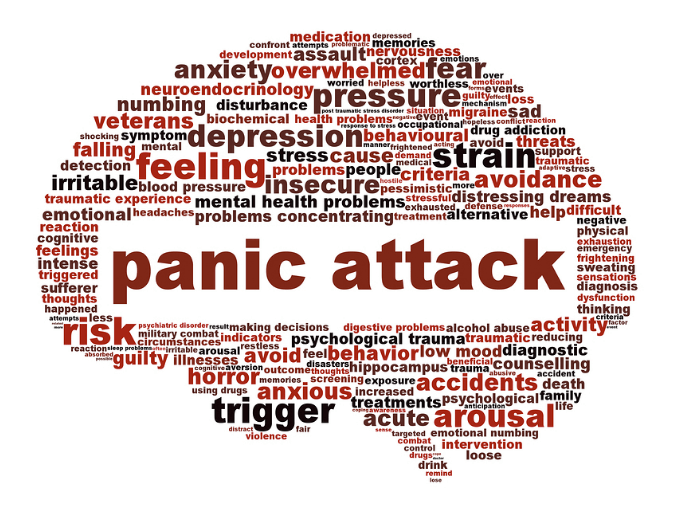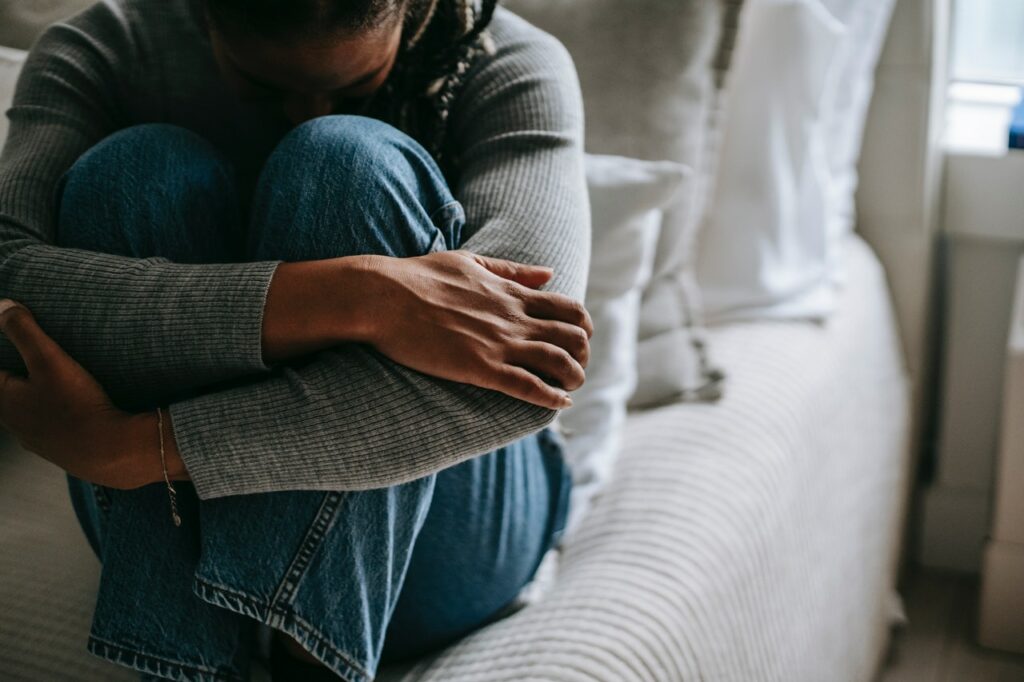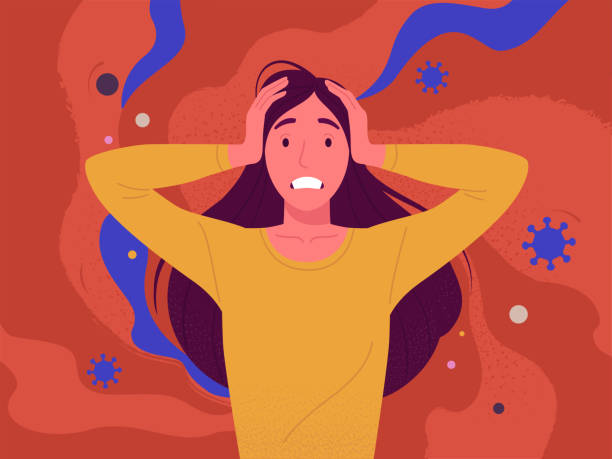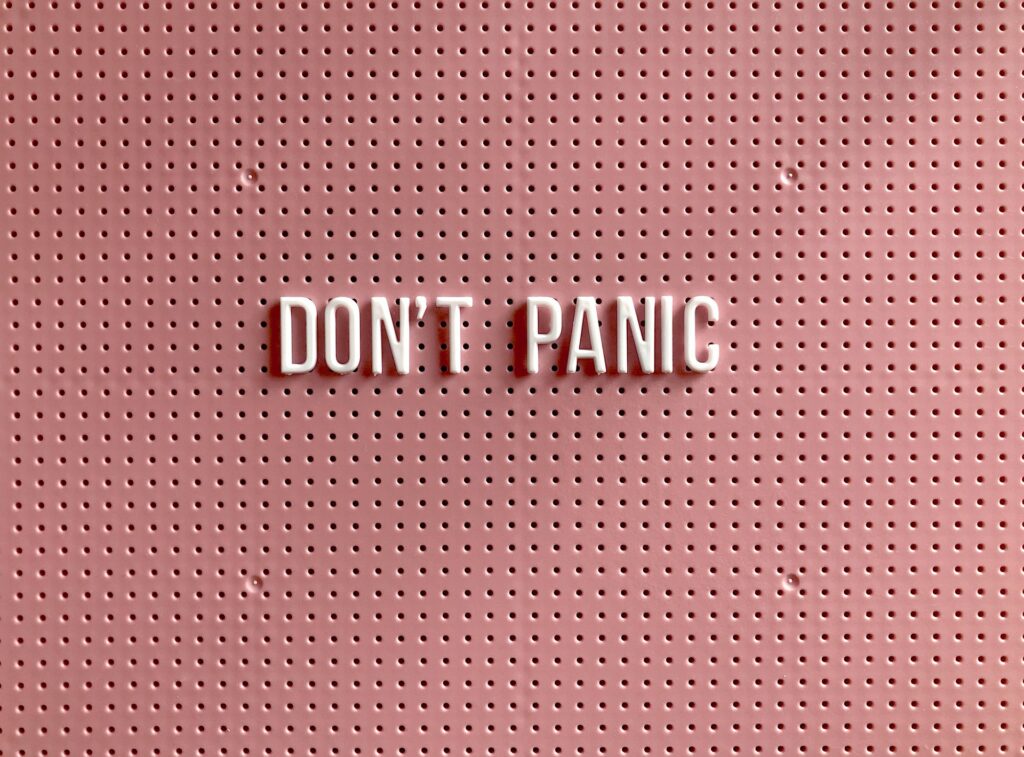Imagine that you are driving a car on a busy road and suddenly feel pain in your chest, thinking that you have a heart attack. And if you’re lucky enough, you reach the hospital, but the doctors tell you that’s not the case. Then what was it…?
It was a panic attack!
It is an unpredictable state that even a healthy person might have a sudden intense episode of the rising feeling of fear. If you think that nothing like that can happen to you, then you are definitely wrong.
The medical research revealed that around 13% of people would experience at least one panic attack in their lifetime. So, there is a chance that you might face a similar situation at least once in your life.
Yeah, it is scary.
But you don’t have to worry. In this article, we are going to discuss panic attacks, their symptoms, and how to stop them – just for you!
What Is A Panic Attack?
A panic attack is a sudden fear that causes intense physical reactions, even though there is no apparent cause or danger. When a panic attack occurs, people often think they are losing control, having a heart attack, or even dying.
While panic attacks are common, many people experience only one or two in their lifetime. The problem usually goes away after the stressful circumstance triggering the panic attack is resolved. However, someone with unexpected panic attacks who live in constant fear of when the next panic attack may occur may have a condition called panic disorder.
Symptoms Of A Panic Attack
The common symptoms that a person experience during a panic attack are:
- Chest pain or discomfort
- Shaking or trembling
- Shortness of breath
- Excessive sweating or cold sweats
- Hyperventilation or shortness of breath
- Abdominal Pain
- Racing heartbeat or heart palpitations
- Nausea
- Feeling light-headed or dizzy
- Feeling like there’s tightness around your neck
- Numbness or tingling sensations in your extremities
- Fear of going crazy or dying
These symptoms occur with the feeling of derealisation and depersonalisation. You lose control of yourself, and your sense of focus disconnects you from everything else while making you feel a stroke to an intense level.
What’s scarier is that if you try to push away these feelings or resist them, it becomes even worse. You might feel that you are losing your life!
Is Panic Attack A Permanent Disorder?
Well, it depends.
If these symptoms were experienced only once by a person in their lifetime, then there’s no need to worry.
On the other hand,
If a person is experiencing the symptoms repeatedly due to unexpected or expected triggers, it’s a panic disorder that might occur for a few seconds or longer hours. And the worse condition would be, these symptoms occur more frequently and for longer hours!
The Six Effective Techniques To Stop A Panic Attack!
If you have already faced such a situation before, you can better understand how essential it is to learn the necessary steps to stop a panic attack before it happens again.
But even if you never had a panic attack experience, it is still a wise option to know how to handle it. It can save you from a frightening experience and prepare you for an unforeseen situation.
So, let’s dive into it!
1. Acceptance Of Reality
You must recognise that these symptoms aren’t real. The physical sensations that you feel are not real. Keep reminding yourself that it’s a temporary state caused by a trigger, and it will go away.
2. Have a Place to Go
Change your surroundings until your symptoms calm down.
When you have intense feelings of fears or symptoms similar to a panic attack, you must train your mind to go to places like a coffee shop, cafeteria, park etc. It can help divert your attention from yourself.
3. Practise Deep Breathing
As shortness of breath is one of the most common symptoms of a panic attack, practising deep breathing can help overcome this difficulty. It can also help with hyperventilation.
Focus on counting and practice deep breaths of at least four seconds. Hold it in and release it every four seconds. Repeat this until your breath is normal.
4. Give Your Brain A Task
Close your eyes and start a task of saying alphabets or count imaginary objects in your mind. As it engages your brain in an activity while interrupting your brain’s negative thoughts, it will help you forget about the overwhelming sensory information causing a panic attack.
5. Do Physical Exercise For Relaxation
Exercising daily and getting proper sleep can also help to lower your susceptibility to panic attacks. Exercise helps uplift your emotions and reduce stress. On the other hand, quality sleep can make it easier to manage disturbing situations and negative emotional responses that accompany them.
Relaxation techniques such as gentle yoga or daily meditation can also help centre you. When you practice mindfulness and develop consistency with meditation, you can easily soothe your fears with the meditation techniques you practice when you are calmer.
6. Find A Focus Object
To distract yourself, you have to find a point or object to focus all of your attention on during a panic attack. Pick one object and consciously note everything about it possible.
For example, observe your surroundings and look for a specific colour, size, or pattern. Describe the observations to yourself or the people around you. When you focus all of your energy on something, your panic symptoms may subside.
When To See A Specialist?
Panic attacks can badly interfere with your daily life. If that’s the case, it’s time to consult with a doctor. A doctor can assist you to find the right treatments so you can learn to overcome your fears and move through your life with ease.
If you are wondering whether your symptoms are bad enough that you need help, here are signs to look for:
- You’re having physical problems.
- You’re striving to make it through each day.
- You’re having thoughts of suicide.
- You’re turning to drugs or alcohol.
- You’re avoiding people and places.
Summing Up
A panic attack is an intense feeling that makes you feel psychological and physical state changes. It can happen to anyone, any time. So, it’s better to learn some useful techniques as they might come in handy someday. However, if you have frequent bouts of panic attacks, you should speak with a specialist.






Recent Comments